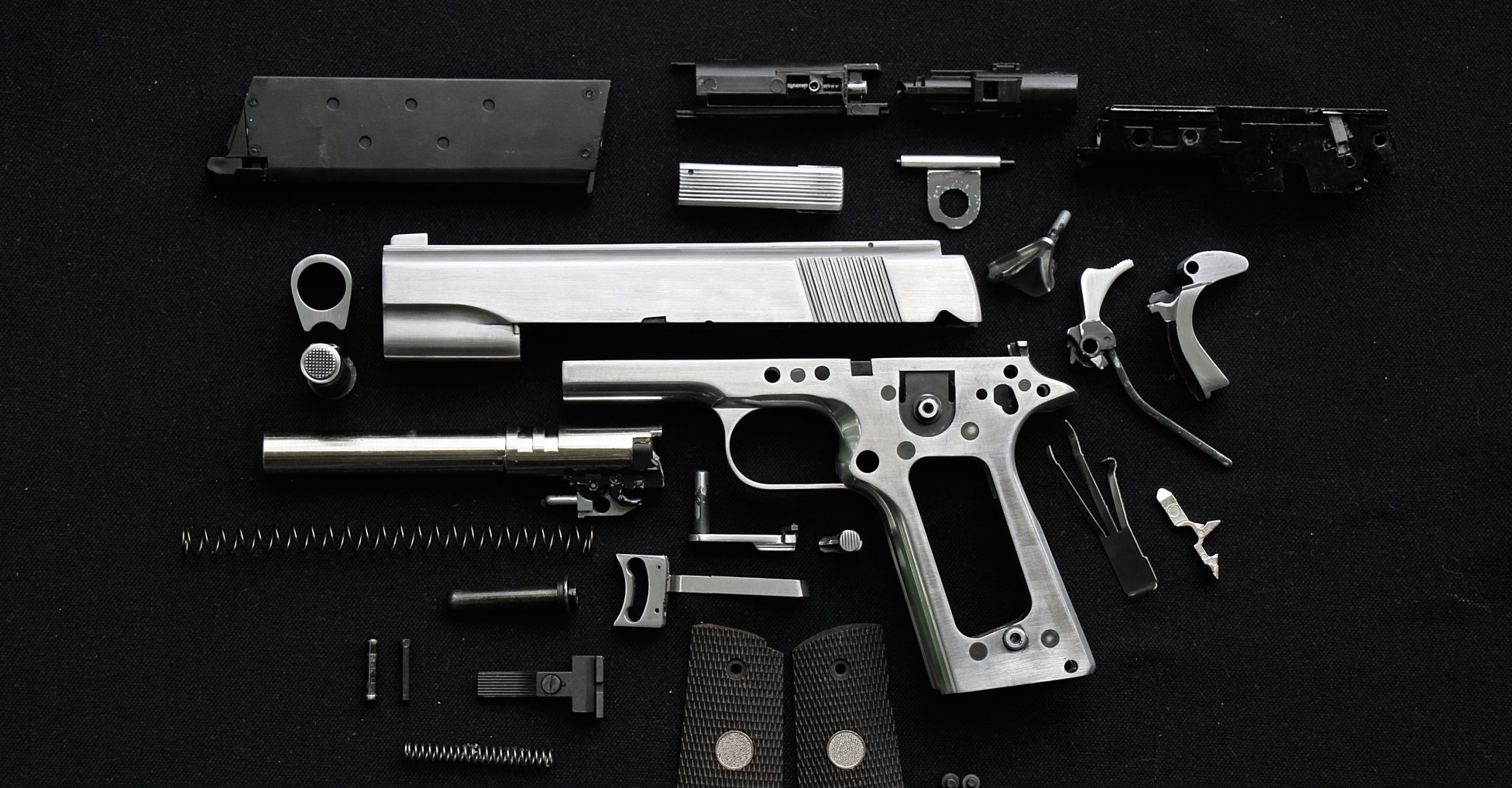Confronting fresh evidence of a dangerous potential defect in its popular P320 pistol, the gunmaker Sig Sauer announced on Tuesday that it’s launching a “voluntary upgrade” to the model to remedy the risk that the guns may fire when dropped.
“Recent events indicate that dropping the P320 beyond U.S. standards for safety may cause an unintentional discharge,” a press release issued by Sig Sauer reads. Details of just how the German-American gunmaker plans to fix the P320 won’t be made public until Monday, August 14, according to the release.
Sig Sauer is one of the largest producers of firearms in the United States. Earlier this year, it won a $580 million dollar contract to supply the Army with a new sidearm, which is based on the P320.
Doubts regarding the safety of the P320 have mounted over the last week:
- On August 3, the Dallas Police Department told The Trace that it was pulling the P320. The DPD said it had received a warning that the P320 could fire when dropped, and it wanted to evaluate the possible defect. (A DPD official declined to discuss the nature of the warning.) As of Tuesday afternoon, the department confirmed that the suspension is still in place.
- On August 4, a policeman sued the gunmaker for $7 million in damages for a wound he allegedly sustained from a dropped P320. Vincent Sheperis, a police officer in Stamford, Connecticut, claims that last January, his P320 service weapon fell out of his holster and fired a round into his leg when it struck the ground. As part of his suit, Sheperis is demanding that Sig Sauer recall the P320. Read the full complaint here.
- On August 7, a Nebraska sporting goods dealer posted a YouTube video of what it said were malfunctioning P320s. Over multiple tests recorded by the gun seller Omaha Outdoors, two out of three guns fired when dropped, producing some dramatic slow-motion footage:
The Nebraska testers concluded that the gun’s trigger was responsible for the discharge. When the gun hits the ground, inertia keeps the trigger moving far enough that it essentially pulls itself and fires.
In a video review published months earlier, Omaha Outdoors had conducted a “torture test” on the P320 and enthusiastically endorsed the model. Now, the gun seller says it will no longer stock the weapon.
“We think the P320 is a fantastic handgun. We’ve sold thousands of them over the years,” a store representative said in the video. “We expected to sell thousands more. However, until Sig addresses this issue and fixes the problem, we will be suspending sale of the P320 at Omaha Outdoors.”
Why this matters: The P320 is a hugely popular firearm with civilians and law enforcement agencies.
In 2015, a drop-fire defect lead to a massive class-action settlement against Taurus, the Brazilian gunmaker regarded as lower-quality than Sig Sauer. The company paid out $30 million and agreed to replace nearly 500,000 defective pistols.
What can Sig Sauer do to address concerns of a defect? Some gun manufacturers incorporate an element known as a “drop safety” into the designs of their handguns, specifically to prevent accidental discharges caused by the impact of a fall. Glock, one of the nation’s most popular handgun brands, includes one such feature, known as a tabbed trigger, on all its pistols. A trigger with that feature will only move backward if the shooter squeezes the tab, and won’t move if dropped.
Offering a tabbed trigger would represent a reversal for Sig Sauer. The company’s marketing materials for the P320 say that the model’s design makes the safety feature unnecessary. The lawyer representing Sheperis, the wounded Connecticut police officer, noted in the complaint that the company’s marketing materials also claim that its engineers, “designed safety elements into every necessary feature on this pistol. From the trigger, to the striker and even the magazine, the P320 won’t fire unless you want it to.”
What the company was referring to when it mentioned “U.S. standards for safety” in its press release: There are no federal safety standards for firearms. In the government’s absence, a trade organization called the Sporting Arms and Ammunition Manufacturers’ Institute performs a series of safety tests on new firearms and ammunition. As The Trace reported earlier this year, compliance with SAAMI’s standards is voluntary.
It’s true that the P320 cleared SAAMI’s bar. But the gunmaker neglected to mention that the trade group’s safety tests don’t examine whether a gun can endure a drop on its back without discharging, which is exactly the kind of accident that has police and consumers worried about the P320.


